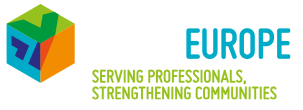Chodesh Tov,
While the world around us is struggling to come to terms with these difficult times, we hope that Pesach can bring some pleasure to us as we once again open our minds and hearts to the ancient wisdom and traditions of our religion. Despite many of us facing changed plans for their Seder night, with global travel severely limited, and at a time where some may be feeling more isolated than usual, it is comforting to feel part of something truly global, as Jews across the world at this moment sit down at their Seder tables to discuss the Exodus from Egypt.
The Seder is a unique ritual in the Jewish calendar, and just as the Exodus narrative tells the story of the genesis of the Jewish people, the festival to commemorate it cements national values into the heart of every Jew.
In his haggada, Rabbi Jonathan Sacks explores this point: “About to gain their freedom, the Israelites were told that they were to become a nation of educators… Freedom is won not on the battlefield nor in the political arena but in the human imagination and will. To defend a land you need an army, but to defend freedom you need education. You need parents, families and homes and a constant conversation between the generations. Above all you need memory – the kind of memory that never forgets the bread of affliction and the bitter herbs of slavery.”
This short paragraph encapsulates the essence of Seder Night. On this night, in perhaps the widest celebrated ritual service across the Jewish world, we ensure future generations are socialized into their national narrative, identity, and values. On this night all Jews become educators.
The haggada itself helps us with the pedagogy we need to do this. Using language from the Talmud (Pesachim 116b), the haggada says: “In every generation each person must see himself [or herself] as if they had come out of Egypt”. How do we do this? We re-experience the Exodus each year on Seder night through ritual and storytelling. In all cultures and societies, national memories are transmitted through ritual and storytelling, and Seder night combines these two magnificently. Because these methods are both experiential, they facilitate the transmission of values and national narrative in a way that other more cerebral modes (such as vigorous study) cannot.
 In her haggada, Rabbanit Adena Berkowitz describes this when she discusses what makes the Seder unique: “[It is] the rabbinic objective to truly experience Passover as if we were there too. At the Seder, we must actually feel the backbreaking work and heat of Egypt, the suffering of our fellow slaves, the terror of the plagues unfolding around us, the rush to leave Egypt, the water lapping at our feet as with trepidation we cross the Sea of Reeds, and our exhilaration to be liberated by God and to face the future in the Land of Israel.”
In her haggada, Rabbanit Adena Berkowitz describes this when she discusses what makes the Seder unique: “[It is] the rabbinic objective to truly experience Passover as if we were there too. At the Seder, we must actually feel the backbreaking work and heat of Egypt, the suffering of our fellow slaves, the terror of the plagues unfolding around us, the rush to leave Egypt, the water lapping at our feet as with trepidation we cross the Sea of Reeds, and our exhilaration to be liberated by God and to face the future in the Land of Israel.”
The haggada then is a manual for educational best practice. Its core message is that we are all educators, and the best education is experiential education.
Wishing you all meaningful, memorable, and fun Seder nights, and a Chag Kasher VeSameach (Happy and Kosher Passover).
Resources
Here is a selection of haggadot you may enjoy, to enhance your Seder:
Please check Yesod Reading List for more information.
- The Jewish Journey Haggadah: Connecting the Generations (Adena Berkowitz)
- The Jonathan Sacks Haggada
- A Night to Remember: The Haggadah of Contemporary Voices (Mishael Zion & Noam Zion)
- Seder Talk: The Conversational Haggada (Erica Brown)
- Passover Haggadah Graphic Novel
- Koren Youth Haggada
- The (unofficial) Hogwarts Haggadah (Moshe Rosenberg)
- The Kveller Haggadah: A Seder for Curious Kids (and their Grownups)
- Tablet Magazine Passover Haggadah: An Ancient Story for Modern Times
Online Haggadot and Resources for Seder night:
- Haggadot.com has many creative and interesting haggadot available as well as the option to Make your own Haggadah.
- PJ Library Family Haggadah
- The National Library of Israel Pesach Resource Pack
- Pardes Online Pesach Resources
- JOFA Handbook of Activities for your Pesach Seder
- Olami Passover Resources
- Jewish Interactive online games and resources for home learning for Passover
- The Lookstein Center for Jewish Education Pesach resources, programmes and lesson plans
- OneTable.org: Seder 2020
